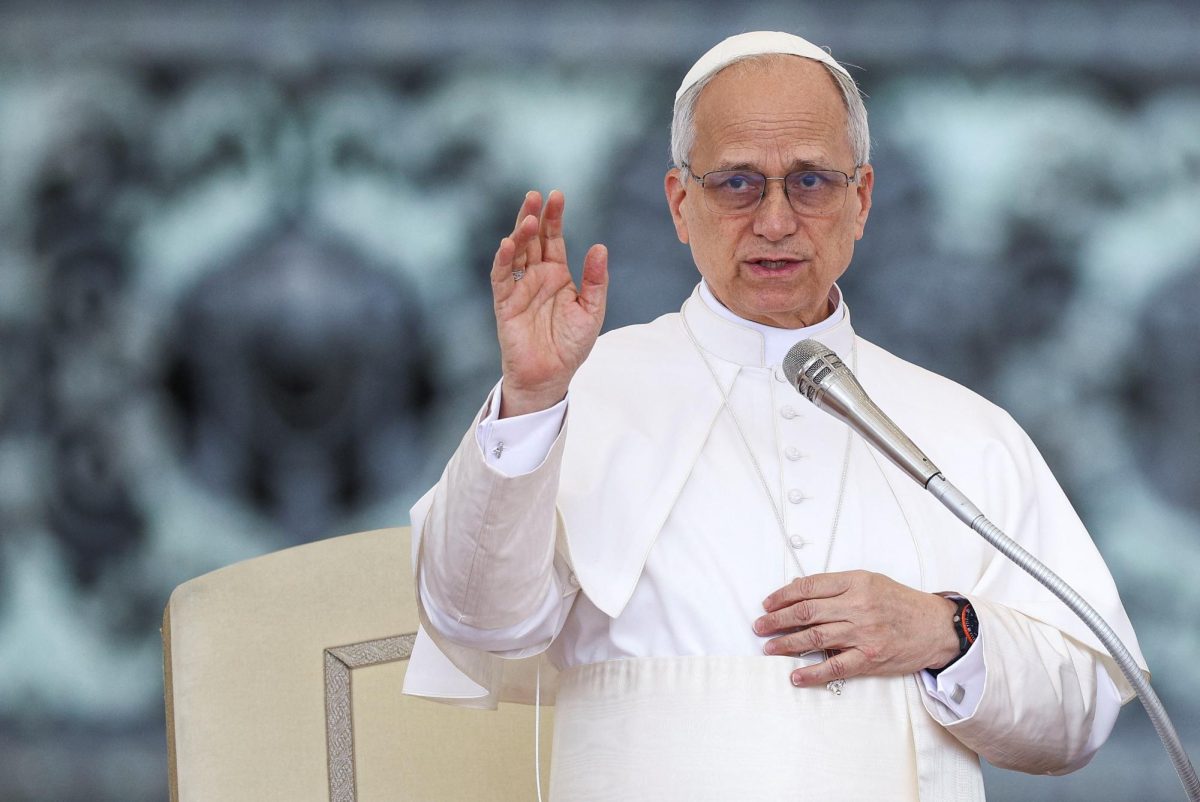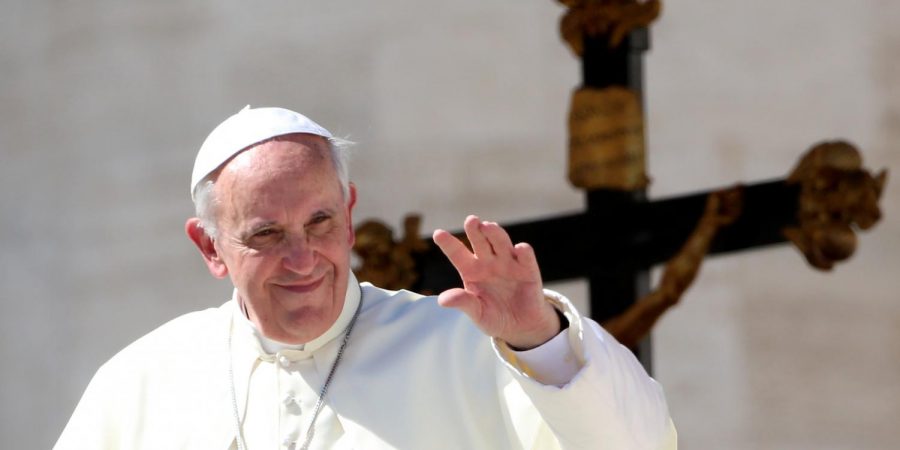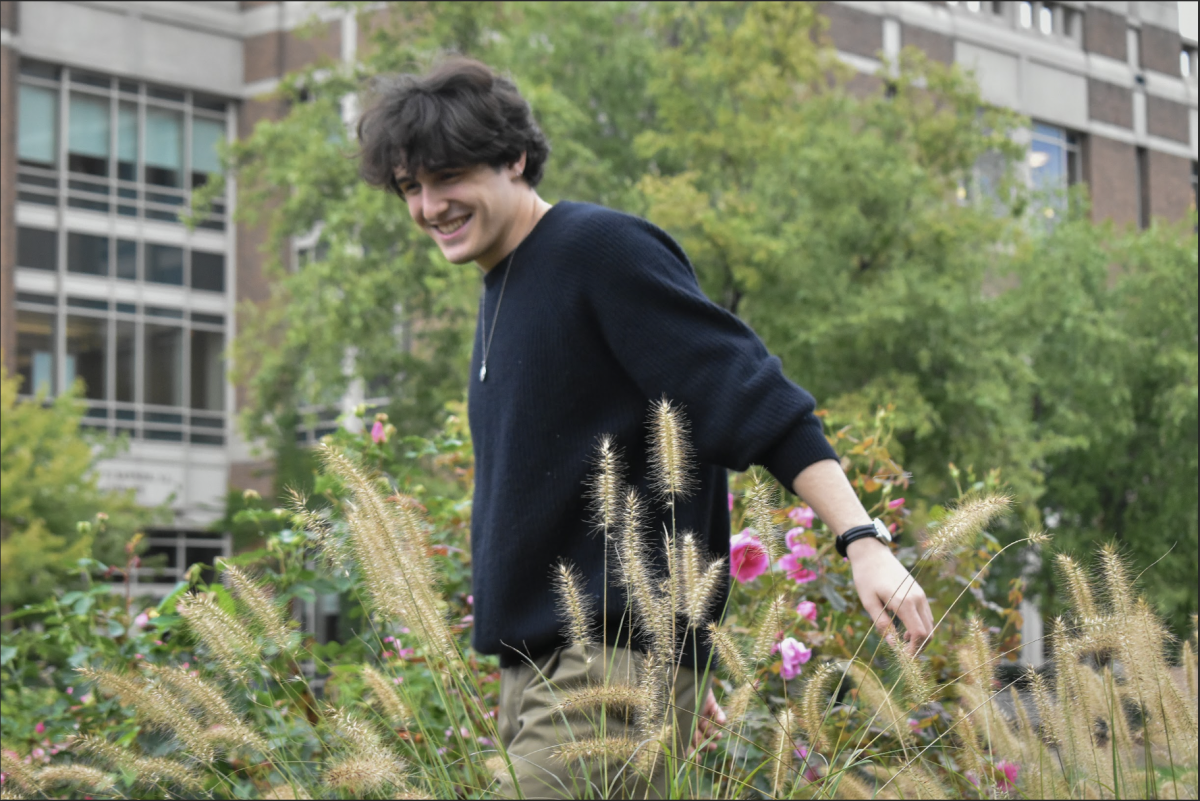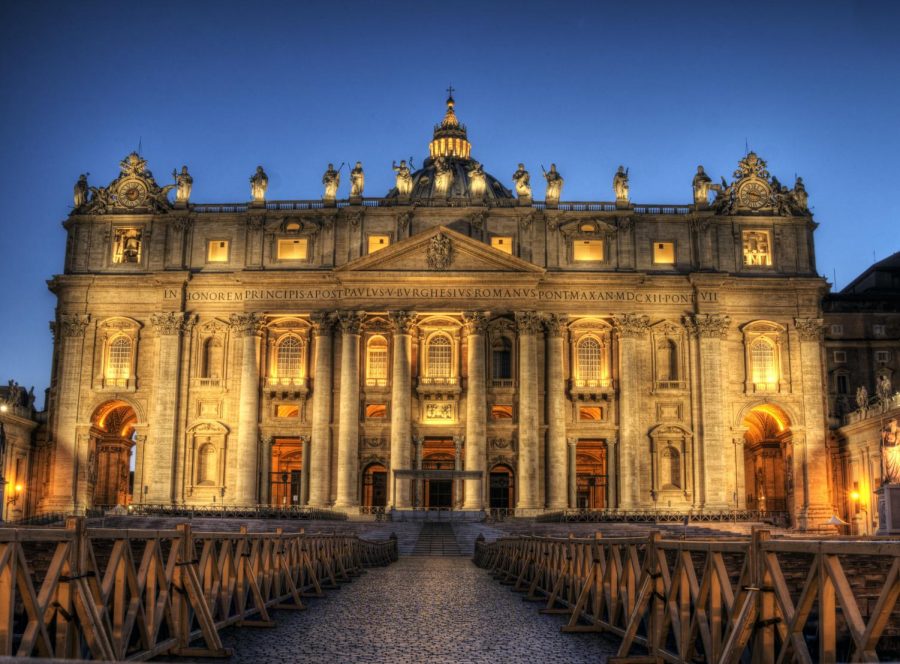 I can distinctly remember sitting in my eighth-grade social studies classroom in April 2005 at good old St. Peter’s School and staring at a TV screen that displayed a live feed of the Vatican.
I can distinctly remember sitting in my eighth-grade social studies classroom in April 2005 at good old St. Peter’s School and staring at a TV screen that displayed a live feed of the Vatican.
It was on in the corner of the classroom while our teacher continued with her lessons. Every once in a while, she would glance at it, and 32 pairs of 14-year-old eyes would follow her gaze, checking for the white smoke that would signal the election of a new pope.
Unfortunately, we weren’t in class when the white smoke actually was sent up, but I think my classmates and I did make it on a local news channel. Cool story, huh?
Sometime soon, I’m sure that same classroom will have a similar live feed set up, this time probably on a more high-tech device than a giant TV strapped to a metal wheeled cart. And this time, instead of just thinking, “It’s pretty cool we get to watch this happen,” I actually care about the person the College of Cardinals will elect to be the next pope.
Since 2005, I have been confirmed in the Catholic Church and added another eight years of Catholic education under my belt. The past eight years have included 10 semesters of theology classes and a greater understanding of my faith and how the teachings of the Church relate to me on a personal level and in my everyday life.
Yesterday, the cardinals met to discuss when the conclave to elect the next pope will commence and began discussing the type of man they believe is best suited to begin his papacy in 2013.
As a lifelong practicing Catholic, I have my own ideas about what kind of person a pope in this modern age should be.
Yesterday on NPR’s “Talk of the Nation,” John Allen, a senior correspondent for the National Catholic Reporter stated that two-thirds of the world’s Catholics live in developing countries “in the southern hemisphere,” but two-thirds of the 207 pope-appointed cardinals hail from North American and European countries.
This misrepresentation is not unlike the wealth and education gap we see between American political leaders and most American citizens. While this is not something that can be fixed overnight, it is something that a pope can exercise some control over, since he appoints the cardinals.
I would like to see a pope who is cognizant of the global Catholic population and who is able to search for qualified Church leaders who represent and understand the concerns of Catholics in the developing world. Several of the eligible cardinals themselves come from these regions of the world and could bring new knowledge and perspective into the papacy.
One of the biggest concerns for Catholics today is the stain of sexual abuse scandals that have pulled the Church into the public eye for extremely unfavorable, saddening and frustrating reasons. My own home diocese, as well as the Archdiocese of Milwaukee, have seen this scandal firsthand.
Like many other Catholics, I find this appalling and completely unacceptable. The fact that prominent Church leaders are willing to cover up or turn a blind eye on such behavior, not to mention the fact that the behavior itself happens, is unacceptable for men who are supposed to be role models for their parishes and dioceses. My hope is that the next pope can adopt a policy that does not allow leaders who have committed such crimes, failed to report them or assisted in covering them up to remain in their prominent positions.
Another controversial issue that many Catholics feel strongly about is the ability of women to be ordained as priests. While I would love to see women ordained in my lifetime, I know this is not a change that can happen overnight. It needs to be a conversation between Catholic laypeople, Church leaders, leaders of other religions that allow female priests and the pope himself. I believe the Church needs a pope who is willing to start this conversation and consider all sides seriously. Women can and do lead governments successfully; why not the Church as well?
The pope has always been a mighty figurehead for the Catholic Church. The traditions upheld by the Vatican are important and can be beautiful. I truly respect the faith tradition in which I was raised and have been fortunate enough to visit St. Peter’s Basilica and the Sistine Chapel.
But I, like most Catholics, live far from Rome and see that if the Church wants to survive as a global institution, the pope must be someone who is willing to truly serve its people. I want a pope who is unafraid to visit Catholics all over the world and genuinely try to connect with them and understand how Catholicism applies to their lives. I believe the Church should not be afraid to grow and change in the coming weeks, years and decades to continue to uphold the faith it has taught for the last two millennia.
My hope is that the Church guiding the children soon to be sitting in classrooms watching for white smoke will be one that can be responsive to their needs – not one that expects them to simply accept and blindly follow its teachings.
—
Caroline Campbell is a senior in the College of Communication with a major in journalism and a minor in history. Email her caroline.campbell@marquette.edu.







David Cortes • Mar 8, 2013 at 1:55 pm
Your views on the selection of a new Pope are cogent, honest, and reasonable. As a graduate of two former Jesuit institutions, I am heartened by your editorial. It leads me to think the Jebs must be doing a generally good job.
I cannot say the same after reading what one of Marquette’s theology professors recently said about the Papacy. Dan Maguire said in the New York Times, of all places, that “If the scandal of the papacy as one of the last absolute monarchies in a democratizing world is not addressed, all other reforms will falter. Catholic scholarship is clear. There is no evidence that a papal monarchy was Jesus’ idea.” How can it be that Marquette, which lauds itself as “Jesuit and Catholic,” hires an outright heretic to teach theology? For it is, indeed, heresy to call the Papacy itself a “scandal” for being a “monarchy” in a “democratizing world.” To the up the ante by saying that “There is no evidence that a papal monarchy was Jesus’ idea” is an act of true hostility to the teaching which, more than any other, separates Catholicism from the rest of the Christian denominations. If Maguire craves the attention of a new Martin Luther or Henry VIII, let him start a new Reformation elsewhere than in a university that calls itself “Jesuit and Catholic.” And if Marquette provides sanctuary to such a heretic, it becomes a heretical institution. I wonder what the new Pope will say to this? The Cardinal Newman Society is doing the work of the Lord in seeing to it that real Catholics know what goes on at places like Marquette. A university that advertises itself as Catholic, but is itself a heretical institution, cannot continue to attract people who choose a Catholic university because of its Catholicism.
Tim • Mar 5, 2013 at 5:16 pm
Interesting points, and in many areas, good points. However, it should be noted that women’s ordination is, as far as the Church is concerned, a dead issue that will not be revisited. Pope John Paul II wrote in 1994, “I declare that the Church has no authority whatsoever to confer priestly ordination on women and that this judgment is to be definitively held by all the Church’s faithful.” As such, wishing that the Church will change on this issue is a hope that inevitably will be in vain. Whether you or I or anyone else like it is up to us, but those are the facts as they are.
Caroline Campbell • Mar 7, 2013 at 7:11 pm
While I am aware of Pope John Paul II’s decree on women’s ordination, I believe that such immovability will lead the Church to stagnate and continue to alienate female Catholics. My hope is that the next pope would be open to progressive change as opposed to ignoring this important issue.